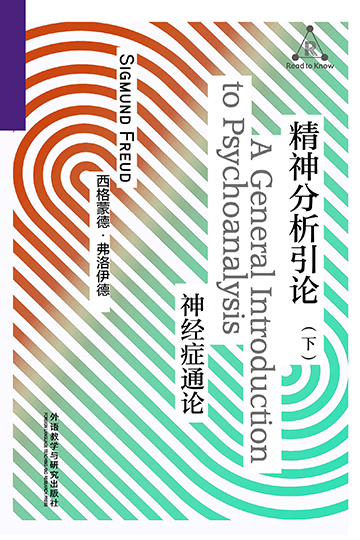神经病的症候背面都有意向,症候是有意义的,与病人的内心生活有密切的关系。
《精神分析引论(下)》是弗洛伊德的重要代表作《精神分析引论》的第三部分“神经症通论”。结合前两部分对失误动作与梦的分析,以确证支配神经症患者的症状与其经历相关,并探索精神分析的治疗方法。在阐明精神分析有关神经病的理论与治疗技术之余,还深入讨论了精神分析心理学的基本原理。本书对精神分析理论进行了全面且系统的概括性论述,是精神分析学说最重要的著作之一。
This is the third part of Freud's A General Introduction to Psychoanalysis, "General Theory of the Neuroses".
- 第十六讲 精神分析与精神病学
- 第十七讲 症状的意义
- 第十八讲 创伤性执着——潜意识
- 第十九讲 抵抗与压抑
- 第二十讲 人类的性生活
- 第二十一讲 力比多发展及性的组织
- 第二十二讲 发展与退化——病原
- 第二十三讲 症状发展
- 第二十四讲 普通神经过敏
- 第二十五讲 恐惧与焦虑
- 第二十六讲 力比多理论及自恋
- 第二十七讲 移情现象
- 第二十八讲 分析治疗
- Sixteenth Lecture Psychoanalysis and Psychiatry
- Seventeenth Lecture The Meaning of the Symptoms
- Eighteenth Lecture Traumatic Fixation—The Unconscious
- Nineteenth Lecture Resistance and Suppression
- Twentieth Lecture The Sexual Life of Man
- Twenty-First Lecture Development of the Libido and Sexual Organizations
- Twenty-Second Lecture Theories of Development and Regression—Etiology
- Twenty-Third Lecture The Development of the Symptoms
- Twenty-Fourth Lecture Ordinary Nervousness
- Twenty-Fifth Lecture Fear and Anxiety
- Twenty-Sixth Lecture The Libido Theory and Narcism
- Twenty-Seventh Lecture Transference
- Twenty-Eighth Lecture Analytical Therapy
- 书评 写书评
- 笔记
-
书评加载中...





















 京公网安备 11010802032529号
京公网安备 11010802032529号
笔记加载中...